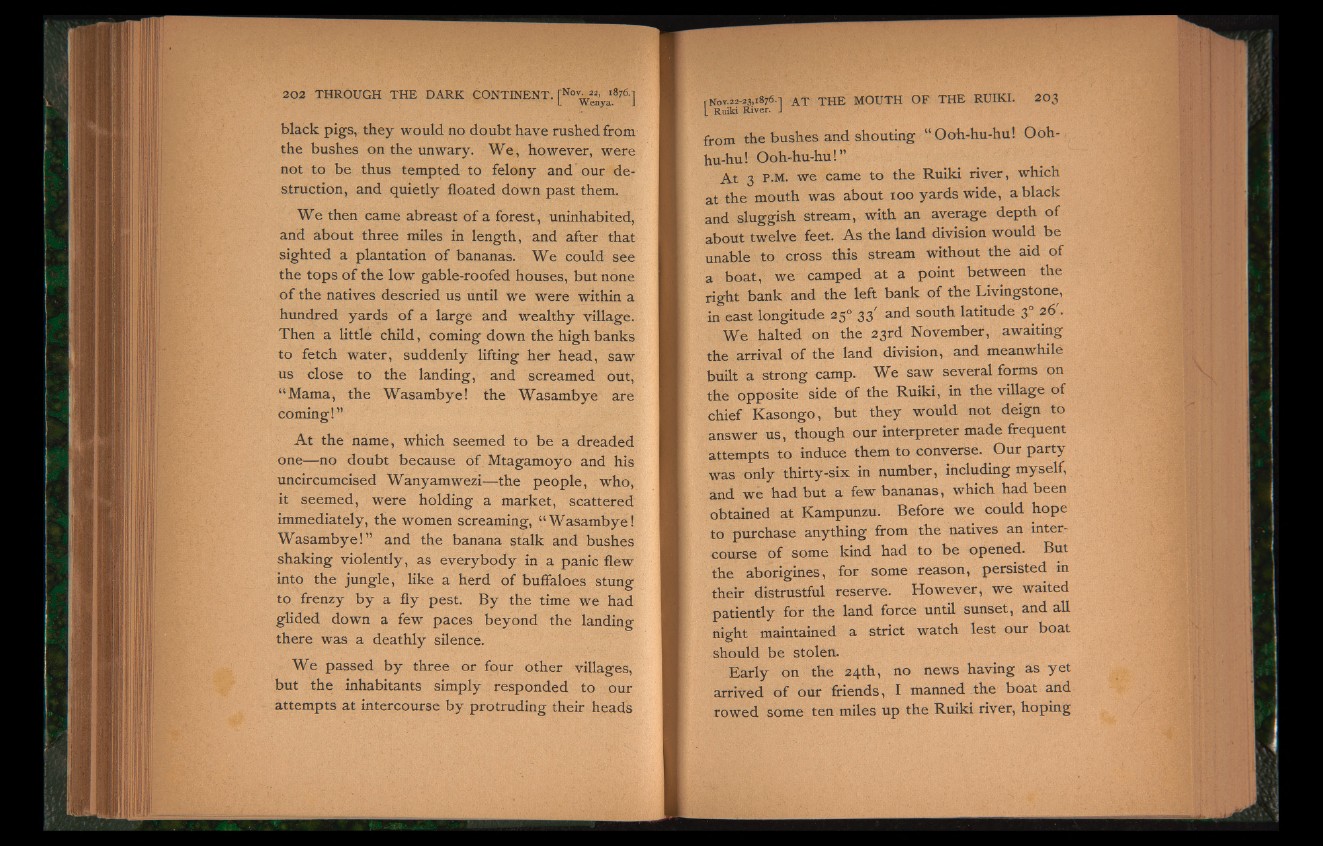
black pigs, they would no doubt have rushed from
the bushes on the unwary. We, however, were
not to be thus tempted to felony and our destruction,
and quietly floated down past them.
We then came abreast of a forest, uninhabited,
and about three miles in length, and after that
sighted a plantation of bananas. We could see
the tops of the low gable-roofed houses, but none
of the natives descried us until we were within a
hundred yards of a large and wealthy village.
Then a little child, coming down the high banks
to fetch water, suddenly lifting her head, saw
us close to the landing, and screamed out,
“ Mama, the Wasambye! the Wasambye are
coming!”
At the name, which seemed to be a dreaded
one— no doubt because of Mtagamoyo and his
uncircumcised Wanyamwezi—the people, who,
it seemed, were holding a market, scattered
immediately, the women screaming, “Wasambye!
Wasambye!” and the banana stalk and bushes
shaking violently, as everybody in a panic flew
into the jungle, like a herd of buffaloes stung
to frenzy by a fly pest. By the time we had
glided down a few paces beyond the landing
there was a deathly silence.
We passed by three or four other villages,
but the inhabitants simply responded to our
attempts at intercourse by protruding their heads
rNoT.22-23.1876 -1 at the mouth of the ruiki. 203
L R u ik i R iv e r . J
from the bushes and shouting “ Ooh-hu-hu! Oohhu
hu! Ooh-hu-hu!”
At 3 P.M. we came to the Ruiki river, which
at the mouth was about 100 yards wide, a black
and sluggish stream, with an average depth of
about twelve feet. As the land division would be
unable to cross this stream without the aid of
a boat, we camped at a point between the
right bank and the left bank of the Livingstone,
in east longitude 250 33' an<^ south latitude 30 26 .
We halted on the 23rd November, awaiting
the arrival of the land division, and meanwhile
built a strong camp. We saw several forms on
the opposite side of the Ruiki, in the village of
chief Kasongo, but they would not deign to
answer us, though our interpreter made frequent
attempts to induce them to converse. Our party
was only thirty-six in number, including myself,
and we had but a few bananas, which had been
obtained at Kampunzu. Before we could hope
to purchase anything from the natives an intercourse
of some kind had to be opened. But
the aborigines, for some reason, persisted in
their distrustful reserve. However, we waited
patiently for the land force until sunset, and all
night maintained a strict watch lest our boat
should be stolen.
Early on the 24th, no news having as yet
arrived of our friends, I manned the boat and
rowed some ten miles up the Ruiki river, hoping